Colombia-Venezuela border to reopen ‘soon’ after coordination, says minister
Colombia says the full reopening of the border with Venezuela will take place sooner rather than later but it depends on legal conditions and the overall restoration of bilateral ties between the two estranged neighbors.
The remarks were made by Colombia's Commerce Minister German Umana on Thursday, who said the reopening of the border with Venezuela "will be soon, in the short term", but that the "adequate security, comprehensive and diplomatic conditions" must be guaranteed first.
“The border will open soon, but at the time when we have that coordination," Umana said during a meeting with business people from both sides of the Colombia-Venezuela border in the city of Cucuta.
Umana said the reopening would not mean a large uptick in trade in the short term but would be key to re-establishing institutional control in an area affected by illegal economies and smuggling.
"What will happen when we open the bridges is that we will replace illegality, money laundering, contraband," he said. "Our business owners are looking for this.”
Umana underlined that trade between the two countries could total more than $600 million this year after reaching $316 million in the first half, almost the same figure it reached during 2021.
Freddy Sandoval, head of the automakers' guild in the Venezuelan state of Tachira, called for "reactivating" the industrial zones.
"Beyond the reopening of the border we hope to reactivate our industrial zones," he told the meeting, adding that the country had the continent's most extensive auto-making infrastructure two decades ago, which needs to be recovered.
Relations between the two countries have warmed in the nearly two weeks since Gustavo Petro was sworn in as Colombia's new president. Petro has promised to reopen largely-shuttered trade across the porous 2,219-kilometer border.
The two countries last week appointed ambassadors to each other in a move seen as the first step toward the restoration of diplomatic ties.
Relations between the two countries were severed by Bogota in 2019 after US-sponsored Colombian President Ivan Duque refused to recognize the reelection of Venezuelan President Nicolas Maduro under US pressure.
Duque, instead, sided with Washington by arbitrarily recognizing Venezuela’s US-backed opposition leader Juan Guaido as the nation’s acting president.
Colombia was among more than 50 US-led countries – mostly in Europe and the Americas – that refused to recognize Venezuela’s 2018 presidential election, which was boycotted by the US-backed opposition.
As a result, embassies and consulates in both countries were shut down, and flights between them were also discontinued. Even the land border between the two nations remained closed between 2019 and October 2021.
Maduro blamed Colombia’s right-wing president for being part of the US-led plot to topple his democratically-elected government, as Duque repeated claims that his Venezuelan counterpart was harboring Colombian rebels that had carried out attacks against his security forces.
Petro’s surprise victory in Colombia’s June presidential election ushered in a new era of politics in the Latin American nation after a century of right-wing rule and decades of national unrest.
US fighter aircraft shot down ‘in friendly fire’ amid aggression on Yemen
Yemeni FM: Israel’s sponsors accountable for ongoing aggression on Sana’a
Eight Palestinians killed as Israel attacks Gaza school, hospitals
VIDEO | Rome, Milan host new protests in solidarity with Palestinians
Dec. 21: ‘Axis of Resistance’ operations against Israeli occupation
Spain jurists demand ties with Israel ties be cut
VIDEO | Press TV's news headlines
VIDEO | Iran honors top Science Olympiad medalists


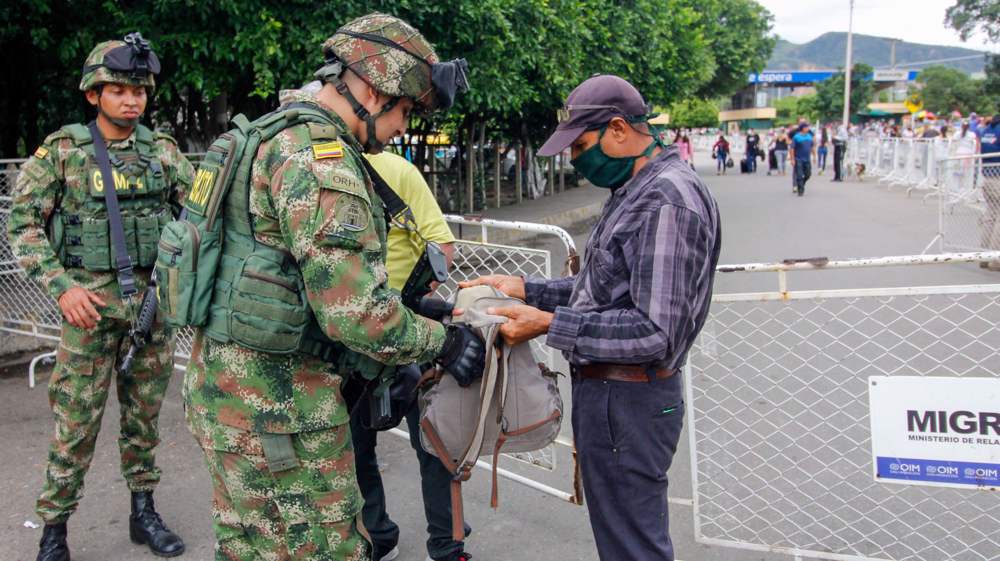
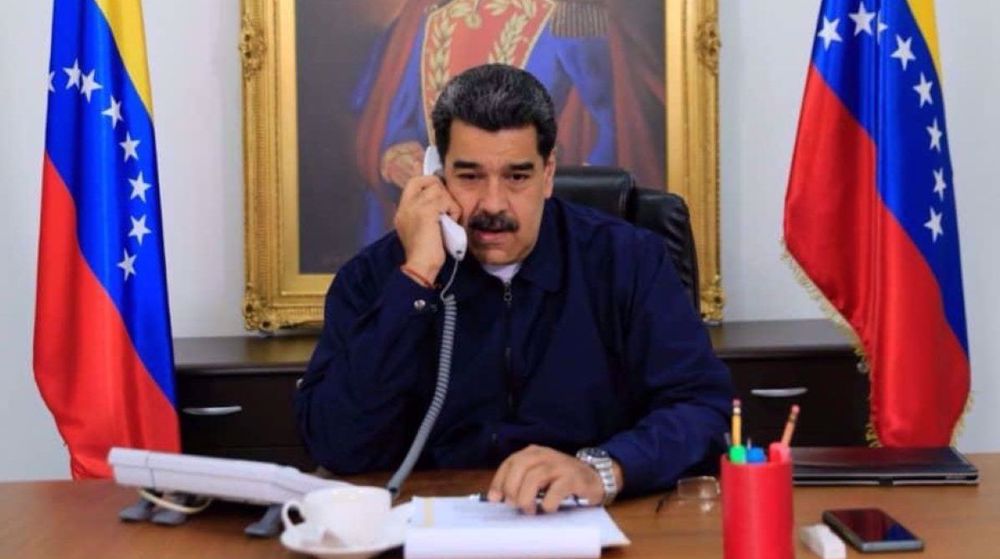
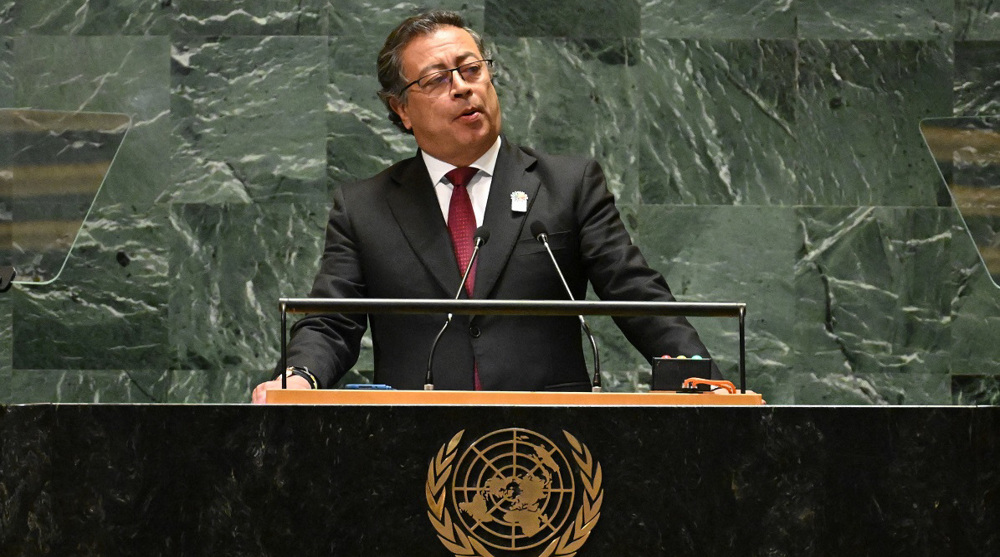
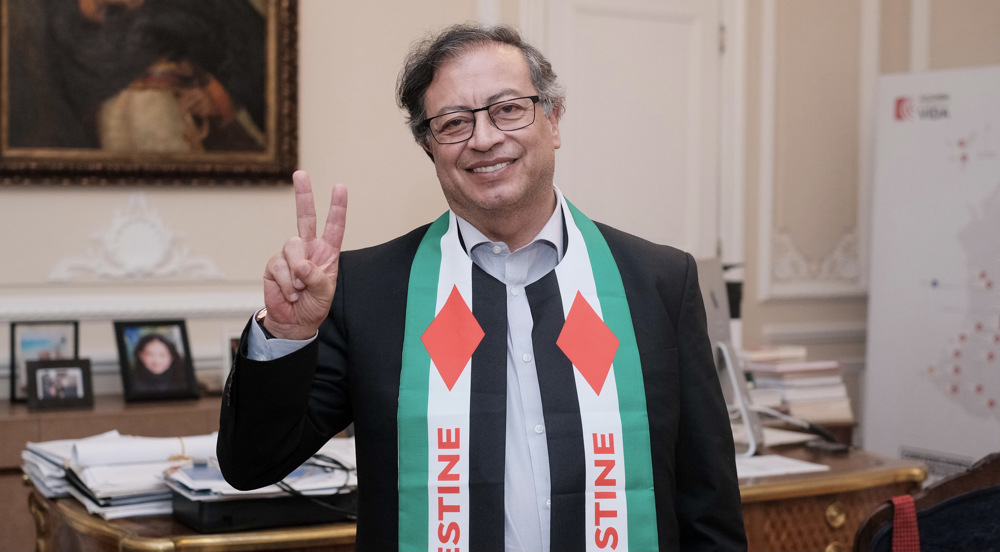
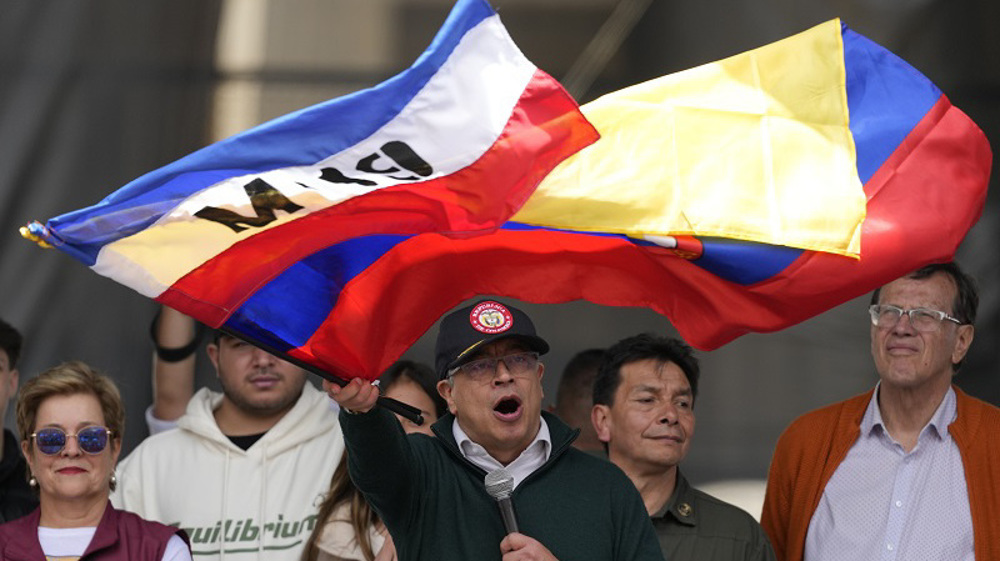




 This makes it easy to access the Press TV website
This makes it easy to access the Press TV website